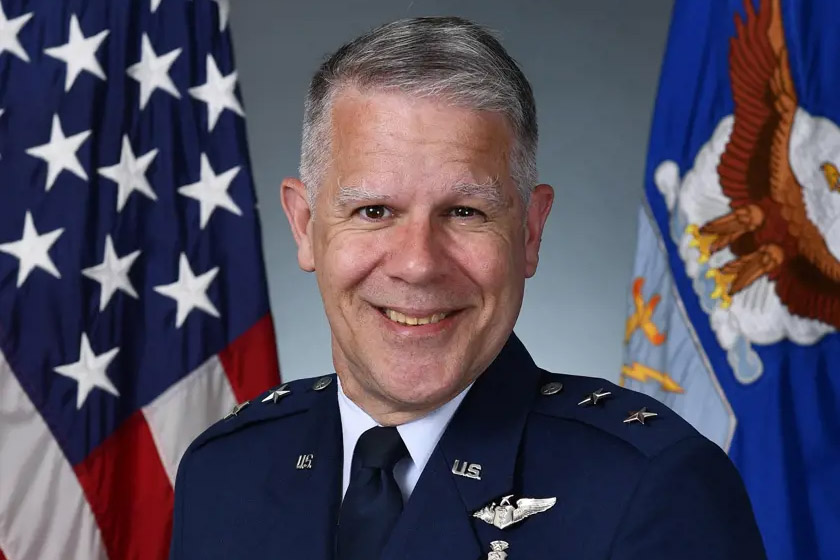Thoughts were churning Friday after Major Gen. (ret.) Paul Friedrichs, MD, challenged the med center to reenvision the practice of health care and help restore trust in health care.
“Trust is the foundation of health care delivery,” he said, “and is the foundation that will decide whether great technological advances are accepted or refuted.”
Dr. Friedrichs, deputy assistant to the president and inaugural director of The White House Office of Pandemic Preparedness and Response Policy, made his comments during UNMC’s Breakthrough Thinking Conference series, designed to challenge and inspire out-of-the-box thinking.
Watch the Breakthrough Thinking presentation with Major Gen. (ret.) Paul Friedrichs, MD, online.
UNMC’s innovative culture and its strength in science and partnerships make it well-suited to take on such lofty challenges, he said. “You’ve done some of the most innovative breakthroughs across the health care system,” he said, noting the med center’s earlier work with Ebola. “As an institution, you historically and repeatedly set the status quo aside and work to rapidly move forward.”
In addition to restoring trust, Dr. Friedrichs highlighted the need to:
- Leverage technology and innovation to fundamentally readdress how health care professionals are trained in the 21st century, given that the workforce is declining faster than current replacement mechanisms. “You can have the best vaccines in the world, but if there’s no one to administer them it doesn’t matter,” he said.
- Build greater resilience and surge capacity into the health care system. “Our inpatient capabilities are sized for the level of disease burden we typically see. … We don’t have a good plan for surge capacity when we have excessive strain or demand on a system.”
- Address disruptions in the supply chain related to, among other things, pharmaceuticals and research equipment.
- Develop biodefense strategies related to deliberate, accidental or naturally-occurring threats. Among the questions posed: How can the med center leverage – and replicate – the infectious disease work done with Ebola on a broader scale? How do we reenvision primary care and public health in austere environments? How can we reenvision public health, and research and development labs, to minimize accidental events, and what detection methods are needed to identify unusual occurrences? What guardrails are needed around artificial intelligence as it converges with biotechnology?
“The reality is those innovative breakthrough thinking solutions will come from places like this,” Dr. Friedrichs said.
He praised the med center’s unique ability to integrate across disciplines and partner with public, private, federal and state entities. “I’ve spent a lot of time in government and have not found any other institution that has cracked the code the way you have on partnerships.”
In the end, it comes back to trust, he said. “Out of everything you could work through in the breakthrough space, restoring the trust in health care, addressing the concerns about the credibility of science and evidence may be the most valuable contribution you could make. Because if people don’t believe in the sincerity of our commitment to their health, then they’re not going to accept whatever comes out of your lab.”
